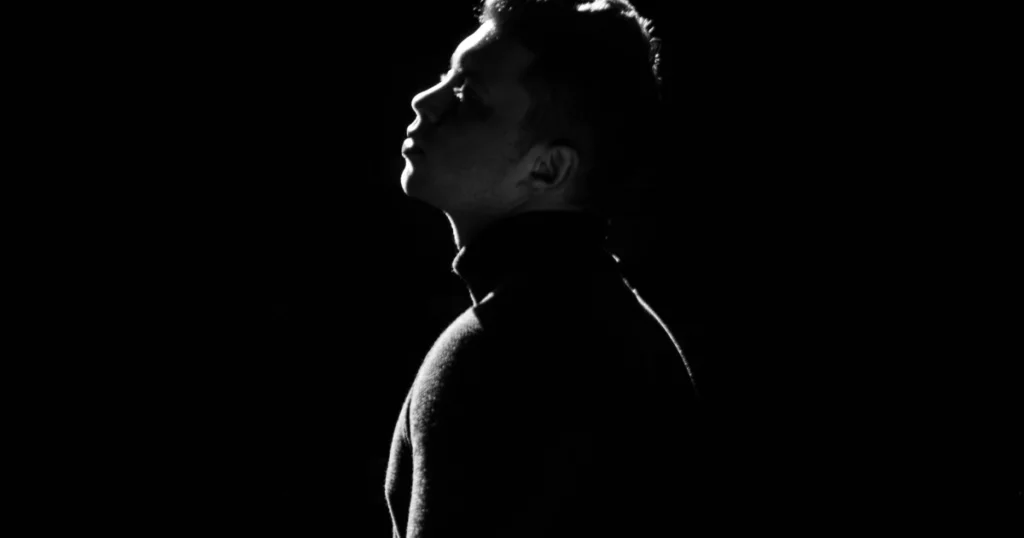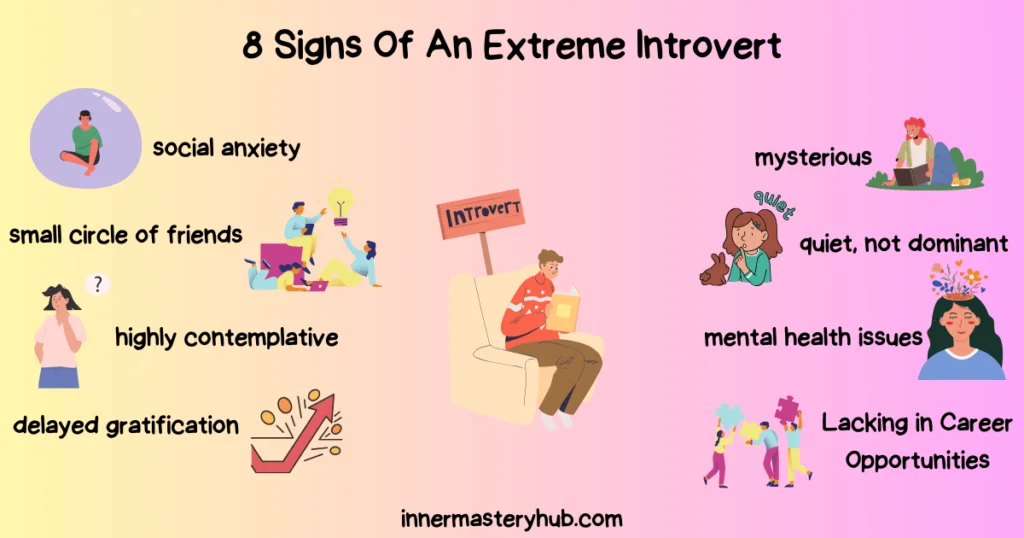“Antisocial vs. Asocial “gets thrown around a lot, often interchangeably. But are they the same? Understanding the differences between these two words can be surprisingly tricky, leading to confusion and misjudgment.
Here’s the truth: asocial and antisocial are not synonyms. While both might involve less social interaction than the average person, their motivations and implications are vastly different. In this blog post, we’ll clear up the confusion.
RELATED: The Narcissist Checklist: 25 Red Flags to Spot On
Table of Contents
What is an Asocial personality?
A person with an asocial personality acts in a way that makes other people notice that they are not interested in or want to connect with others. Asocial people show a preference for solitary activities and may not actively engage in social activities.
People with an asocial personality may seem shy, quiet, or uninterested in socializing, but they are not trying to hurt or control others. Asociality can be a personality trait or a brief state.
People with an asocial personality may be happy doing things by themselves, thinking about themselves, or doing things that don’t engage in social interaction.
Asocial personality disorder may be a symptom of social anxiety, avoidant personality disorder, autism, or depression. Asocial people may also experience depression due to social isolation.
RELATED: Decoding Anxiety Neurodivergent: Insights, Strategies, and Support
What is an Antisocial personality?
The term “antisocial personality” describes a mental disorder marked by a persistent pattern of disregard and violation of the rights of others. Along with an aptitude for impulsivity, dishonesty, and irresponsibility, people with antisocial personality disorder often show a lack of empathy and remorse.
They might constantly exhibit actions that damage others, like lying, controlling others, acting aggressively, and disobeying laws and conventions. People with antisocial behavior might continuously take advantage of or hurt others despite possible repercussions, frequently without feeling regret or empathy.
Antisocial Vs. Asocial Behavior: Key Differences
Antisocial vs. asocial behaviors are distinct concepts often confused due to their similar-sounding names. Difference between asocial and antisocial :
| Feature | Antisocial | Asocial | ||
| Motivation | Disregard for social norms, lack of empathy | Preference for solitude, introversion | ||
| Impact on Others | Harmful, disruptive, exploitative | Neutral, minimal interaction | ||
| Internal Experience | May not experience distress | May experience loneliness, social anxiety | ||
| Potential Cause | Mental health condition, trauma | Personal preference, personality trait | ||
| Social Interaction | Actively disrupts or exploits | Enjoys solitude, avoids large groups | ||
| Relationships | Manipulative, deceptive | May struggle with close relationships |
Asocial vs. Antisocial Personality: Causes
While antisocial vs. asocial individuals interact less in social situations than the typical person, the reasons behind them are vastly different. Let’s delve into the potential causes for each:
Asocial
- Genetic predisposition like naturally introverted.
- Temperament like shyness or preference for solo activities.
- Adverse experiences like trauma or rejection.
- Mental health conditions like schizophrenia, autism spectrum disorder, depression, social anxiety, and lack of motivation.
Antisocial
- Genetic predisposition like antisocial personality disorder (ASPD).
- Neurological differences might differ, such as brain regions involved in empathy and emotional regulation.
- Childhood neglect, abuse, or inconsistent parenting.
- Growing up around such behavior can raise the likelihood of adopting it.
- Mental health conditions as psychopathy.
RELATED: Tension in the Neck and Shoulders From Anxiety
Treatment for Asocial Behavior
Asocial behavior treatment addresses underlying causes and helps people acquire better social skills and connections. CBT is often used to change negative cognitive patterns, social concerns, and self-isolation. Therapists can help people recognize and fight negative social attitudes, improving their relationship outlook.
Another helpful method is social skills training, which teaches acceptable social behaviors, communication skills, and coping mechanisms. Individuals can gradually engage with others, exchange experiences, and improve social confidence in group therapy or support groups.
The treatment approach must include addressing mental health issues like social anxiety and depression. Asocial behavior treatment aims to increase social functioning, reduce isolation, and improve quality of life through positive and gratifying social interactions.
Treatment for Antisocial Behavior
CBT is used to treat abnormal thought patterns and disruptive behavior, especially in Antisocial Personality Disorder (ASPD). CBT develops empathy, impulse control, and prosocial abilities, but participation is required. Co-occurring disorders may require medication.
Traditional therapies have limited efficacy, encouraging exploration into therapeutic communities. Complete remission of antisocial tendencies is complex, requiring a multidisciplinary strategy involving mental health specialists, legal authorities, and support networks to manage and reduce harm.
RELATED: 7 Stages of Trauma Bonding & Recovery
Coping and Management for Asocial Behavior Traits
Mindfulness and stress-reduction methods, in addition to therapy, can help people who act asocially. Doing mindfulness exercises, like yoga or meditation, can help you deal with social anxiety.
A balance between personal space and social interaction can be reached by setting up an organized routine that includes alone time and self-reflection. People can slowly make new friends by learning how important it is for their general health and happiness to keep up with their social contacts. This can help them feel like they belong without being too uncomfortable.
Coping and Management for Antisocial Behavior Traits
In addition to therapy, law, and social actions are often needed to deal with antisocial behavior. Legal penalties, like probation or jail time, can stop people from doing bad things and have dire outcomes for those actions. In prisons and jails, rehabilitation programs can help with core problems and teach skills that will help people get back into society.
Social support from family and friends can be significant for making suitable changes when available. Working on becoming accountable and taking responsibility for your actions is essential. To see how things are going and lessen any harm that might happen, it is vital to keep an eye on things in both the law and mental health systems.
Is being antisocial the same as being introverted?
No, being antisocial involves disruptive behaviors, while introversion simply prefers solitude over extensive social interactions.
Distinctions between Antisocial vs. Asocial behaviors?
Antisocial behavior involves violating societal norms, often with disregard for others. It includes harmful actions. Asocial behavior, conversely, signifies a lack of interest or avoidance of social interactions without deadly intent. It reflects a preference for solitude rather than active disruption of social norms.
What is an introvert?
An introvert is someone like me, who finds peace and energy in solitude rather than in social gatherings. You feel deeply and often prefer quiet, reflective moments over noisy, crowded places. When I’m with others, You might seem reserved, but it’s because you cherish deep, meaningful connections.
you need time alone to recharge and process my thoughts. It’s not that you dislike people; yoy just get overwhelmed by too much external stimulation. If you see them withdrawing, know that they are simply seeking a moment to breathe and regain inner calm.






